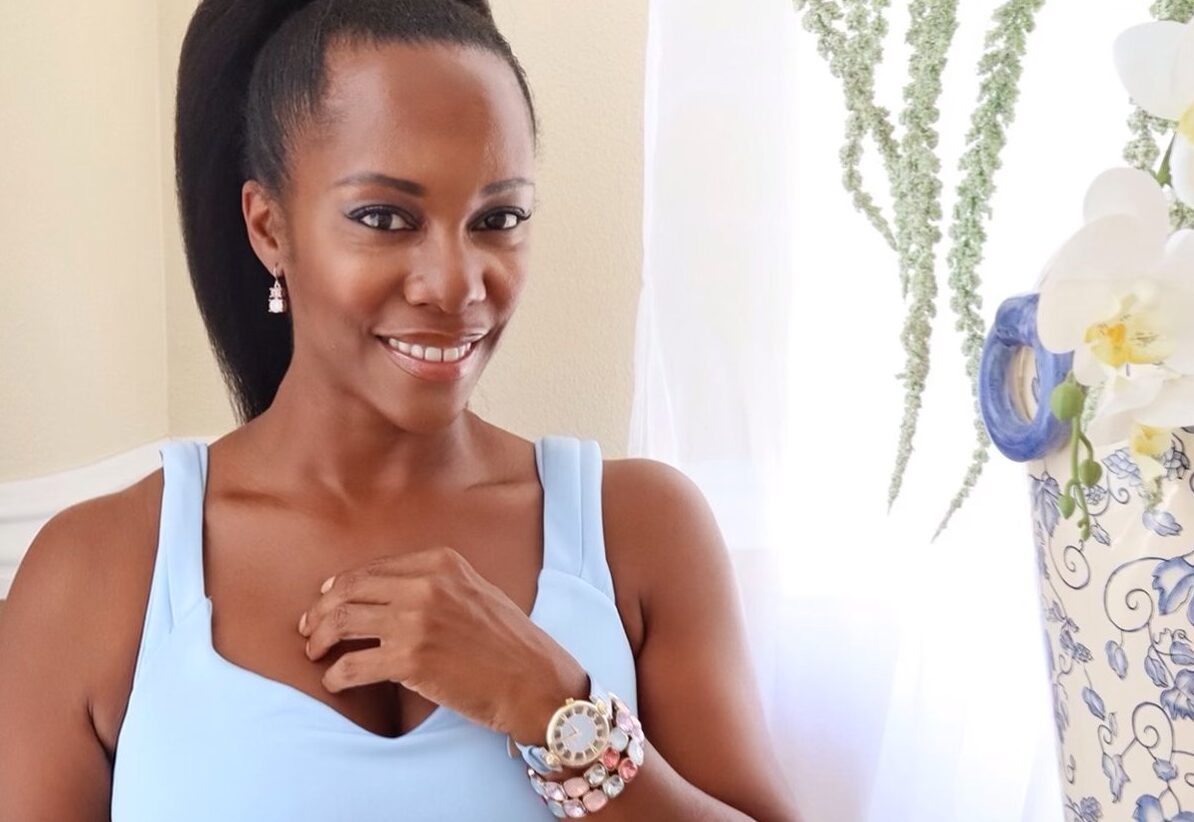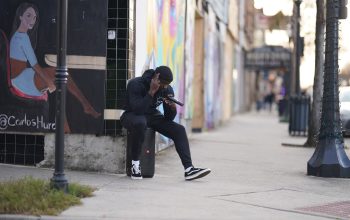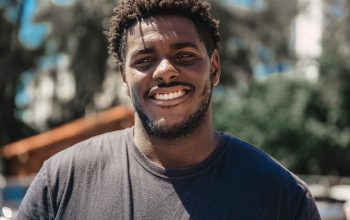Christelyn: Well, thank you for having me!
Meraki: Let me start off with saying, Congratulations. I heard that you are one of the wealthiest YouTube stars in the United States, and she is a black woman. So, I applaud you!
Christelyn: Oh, thank you so much.
Meraki: Tell the readers a little bit about yourself. Where are you from and a little bit about your history because I am quite interested that you went to school at Loyola Marymount University.
Christelyn: Loyola! Well, so I grew up in Antelope Valley, California, which is why you pick up on an accent. I am genuinely authentically a valley girl. I grew up in a middle-class background. My parents are from the south, and they moved to the LA area from Texas to have a better life because it was a sort of a Great Migration from people who moved from the south and into California for jobs. So, I have been born and raised in California, and I went to Loyola Marymount University, and I got pregnant there. I was a baby, mama!
Meraki: There is nothing wrong with that!
Christelyn: It did change the trajectory of the direction of my life positively because of that I had to start thinking differently. I had to think about someone other than myself. I sort of was just on this Odyssey this journey to getting where I based on my successes, but mostly my failures learning from my failures and leveraging them as teachable moments to other people. So, while I became a baby mama in college, I also met my husband.
Meraki: Okay!
Christelyn: That was pretty life-changing. My husband is not black. He is German and European descent, and when we got married, it was so funny. My girlfriend would ask me. How did you do that?
Meraki: Yeah, because I am wondering, how did your family deal with that? How did your girlfriend deal with that?
Christelyn: Well, at the time, this was the late 90s, 1999, early 2000. There was still that narrative that oh white men will hide you at your home. He will not introduce you to his family, and he will never marry you. So, when I got married, they were just like, what? My parents had always been open because I remember when I was eight years old. I asked them a question only to kind of I was just trolling them because I had not any intention to do this, but I was just rolling them. I said, well you guys do if I married a white guy and I thought, you know, my dad was born in the 1920s my mom was born in 1940, you know, they’d seen the worst of racism in this country. They had seen you know, the worst of you know, what happened in the Civil Rights Movement. My dad only had an eighth-grade education. He was a sharecropper son. So, I expected a quite different answer than what I got, and what they told me is we do not care if he’s black, white, or purple as long as he treats you. Well, that is all that matters.
Meraki: Okay
Christelyn: I was shocked that they said that, but that laid the foundation that made it okay for me to explore.
Meraki: You had the green light!
Christelyn: Yes!
Meraki: So, what do you think hinders black women today from interracial dating?
Christelyn: Well, they do not have a green light. Black Women do not have a green light from their families, society, friends. For a lot of black women, social acceptance, wanting to be validated, and feel like part of a community is so important to them that they will constrict what they do to maintain that support system. The problem is though that it does hamstring us when it comes to dating and mating. The goal was I have a background in writing. I used to be a freelance writer for Better Homes and Gardens room, Reuters News Service, and so I decided just to pitch a book. I pitched it to some publishing companies, and I got three offers. I said, hey, what about a book on interracial relationships from a black woman’s perspective, and we got several have a co-author we have several offers. We decided to go with Simon & Schuster, and it just set off this revolutionary conversation. There were a lot of people that were extremely uncomfortable with having that conversation.
Meraki: Yes, you got to rip the Band-Aid off a little bit.
Christelyn: Yes, in the end, the book came out in 2012, and it was remarkably interesting. The response that I got. It was anger, a lot of anger, a lot of Hope, a lot of confusion, a lot of cognitive dissidence. Internet dating became a thing it became possible for people to meet people from different backgrounds. Once that started happening, so this is interracial dating has a direct correlation with the internet with the rise of internet dating platforms. Black women start warming up when they start seeing their friends, see people on Instagram and YouTube interracially looking happy they were like, well, okay! So, they came to me, and they were like, all right, I am open to this, but I do not feel comfortable around people outside of my Black Community. I do not feel comfortable. I do not know how to navigate; I feel less confident. So, I developed a course based on my successes and failures, and that was the pink pill, which was extremely successful, especially since people did not know what that was.

Meraki: What inspired the name?
Christelyn: So it is a playoff The Matrix. The blue pill or the red pill. Are you ready to take that pill that will tell you what you need to know that will make you uncomfortable but can have a whole world of possibilities for you? The offshoots of that were the pink pill for college because I wanted college girls to know. Hey, there is a lot of issues that people reach out to me. When I was in college, all I did was get my education because parents tell Black women all the time, do not worry about boys do not worry about those white people just get your knowledge and get out. What we realize is that we miss a massive opportunity to meet people who can expand our network to meet possible marriage partners to meet lifelong friends. That can also be business contacts because when you are in college, everybody is on the same level playing field; you are in the same class as the congressman’s son. You are in the same class as the CEO’s daughter. So, we miss opportunities when we do not know how to do that. So that is why I created the Pink for college.
Meraki: Do you believe students that are black women? Are setbacks because of some form of oppression or colorism against black features and beauty standards? Do you feel that has caused us to hinder ourselves a little bit?
Christelyn: Yes. Definitely. We black women have drilled into them that we are inferior. So we show up to the world feeling that way or being in a defensive mode because of all of the negative things that we get, so it’s up to us to reprogram, and what I tell people is that you’ve got to find your tribe. You have to find your circle of support. If you are around people who tell you that you are inferior and less than you need new friends’… period… the end! You can find allies and friends of all races, colors, and creeds, and I encourage black women to do that because the whole world opens to you when you are brave enough to see what else is out there.
Meraki: What are your main goals for the pink pill overall? You said you have Pink Pill college and Pink Pill for business?





A well deserved and much needed interview. 👍🏾
Very much needed conversation.
Congrats Mrs. KARZIN.🥳⚘
This is great, I love when bw of all walks reach up, not sideways. We have so much potential.
My wish with swirlnation is to see a Nationwide Convention for BW and non blk men who r together or wanting to get together.
Imagine the conversation! And the meet up. 😊
Hey Karen,
Thank you for your comment. I think a really nice multi-cultural dating meetup would be amazing.
my your platform grow and thrive
Thank You!